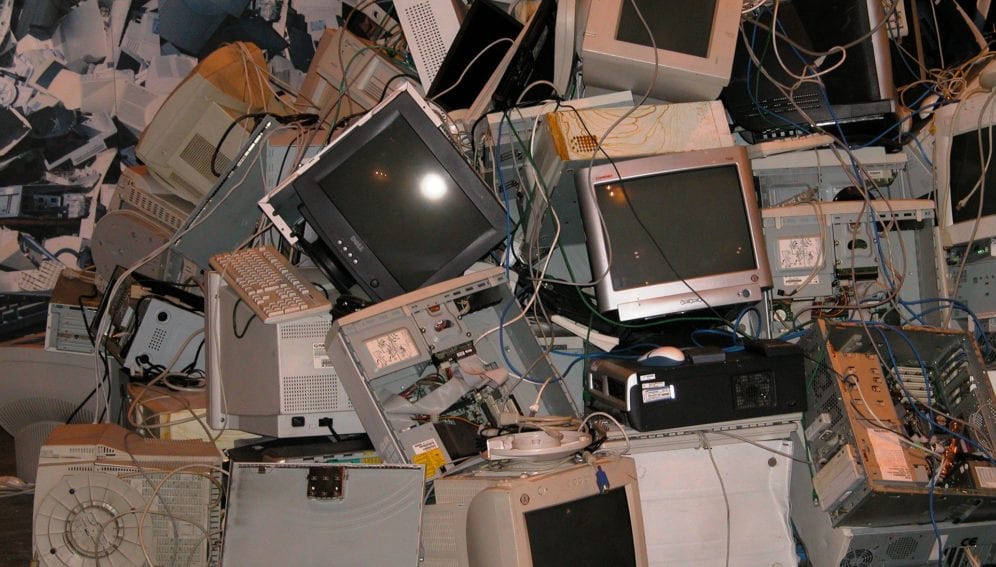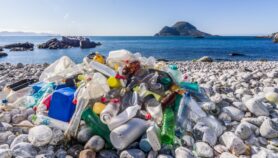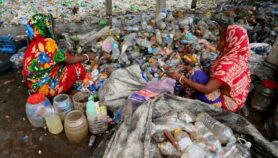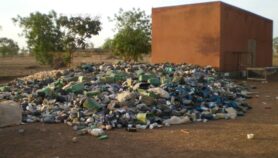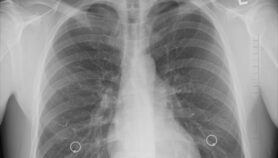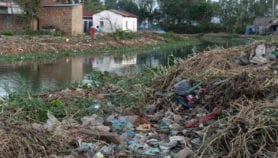By: Samuel Hinneh
Send to a friend
The details you provide on this page will not be used to send unsolicited email, and will not be sold to a 3rd party. See privacy policy.
[ACCRA] Deadly chemicals emanating from improper disposal of old electronics shipped from Europe is contaminating food in Sub-Saharan Africa, says a report.
The report adds that although countries in the global South lack efficient, safe and sustainable infrastructure to discard old electronic products, known as e-waste, most of such dangerous products are dumped in these nations.
Experts say that discarded electronics have chemical substances including brominated dioxins that persist in the environment, and accumulate in the food chain, a series of organisms in which each one is the food source of the next member of the chain, thus being harmful to human and animal health.
“The results of recent egg testing at the Agbogbloshie scrap yard in Ghana include the highest levels ever found of brominated dioxins,” says the report. “An adult eating just one egg from a free-range chicken foraging in the Agbobloshie area would exceed the European Food Safety Authority tolerable daily intake for dioxins by 220-fold.”
“Just eating 2.5 grams of those eggs per day, a consumer can reach tolerable daily intake for dioxins for 15 persons.”
Jindrich Petrlik, IPEN
The report was released last month (22 April) by the International POP's Elimination Network, a global network of non-governmental organisations forging a toxic-free future, and Basel Action Network, a US-based organisation confronting devastating impacts of toxic trade.
According to Jindrich Petrlik, lead author of the report and co-chair of IPEN’s working group on dioxin and other dangerous chemicals, brominated dioxins affect brain development, damage the immune system and increase cancer risk.
“Just eating 2.5 grams of those eggs per day, a consumer can reach tolerable daily intake for dioxins for 15 persons,” Petrlik tells SciDev.Net, referring to the outcome of the study in Ghana, which involved collecting at least four to ten eggs of free-range chicken per a hotspot and testing them for potentially dangerous chemicals.
According to the report, researchers also used electronic trackers to trace used electronics shipments from Europe to Ghana, Nigeria and Tanzania.
“The most e-waste exported to developing countries came from the United Kingdom but Germany, Italy, Ireland, Poland and Spain were all implicated in likely illegal traffic in e-waste,” the report adds.
The study which began in 2017, according to Petrlik, aimed to determine the extent and impact of toxic e-waste exported by Western countries to Africa.
Jim Puckett, the executive director of Basel Action Network, says that he hopes the findings will compel Ghanaian authorities to provide an alternative supply of healthy eggs for the residents of the slum in Agbobloshie.
“We also wish to see the manufacturers of vehicles and electronics stop the use of halogenated compounds [a class of chemicals that contain elements such as fluorine, chlorine, bromine or iodine] in all of their products,” Puckett explains that that burning such products openly creates fumes that release the dangerous dioxin class of chemicals.
Ayuba Danasabe, an environmental health expert based in Nigeria, calls on African governments to strongly restrict importation of used, non-functional electronics from the global North to Africa.
Matthew Arhin, the chairman of the Kumasi Scrap Dealers Association in Ghana, says that some members who work on used electronics such as television have encountered health problems including stomach pain in the past.
Arhin adds that some of the association’s members use protective clothing including masks to prevent exposure to smoke that emanates from their activities.
This piece was produced by SciDev.Net’s Sub-Saharan Africa English desk.
References
Jindrich Petrlik and others Weak controls: European e-waste poisons Africa’s food chain (April 2019)


